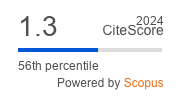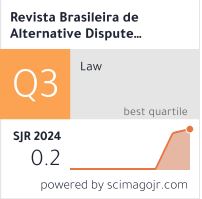Legal Grounds and Ethical Conditions of Alternative Forms of Criminal Law Conflict Resolution in Russia
Schlagworte:
Criminal Proceedings, Conciliation Procedures, Exemption from Criminal Liability, Termination of Criminal Prosecution, Reconciliation of the Parties, Active Repentance, Special Proceedings, Agreement with the Indictment, Procedural CompromiseAbstract
The article’s primary purpose is to reveal the potential of alternative forms of resolution of criminal law conflict in Russia’s criminal and criminal procedure legislation. The scientific approach of the authors consists of conducting a comprehensive comparative legal analysis of the norms of international acts and foreign legislation regulating conciliation procedures in criminal proceedings. The scientific novelty lies in the systematic analysis of changes in the humanization of criminal proceedings in all countries based on recommendations developed by the international community. The methodological basis of the study was a set of methods of scientific cognition, among which the dialectical method occupies a leading place, which allowed for identifying the grounds, conditions, essential features, signs and ethical foundations of alternative forms of resolving criminal law conflict. Combining scientific cognition methods in research creates prerequisites for an objective and comprehensive approach to the identified problems. Based on general scientific dialectical methods of analysis, synthesis, abstraction, and concretization, as well as private, scientific comparative legal and technical legal methods, the authors concluded the importance attached to conciliation procedures, which have become an integral part of the legal system of the vast majority of countries. The authors argue that the institution of compromise in criminal proceedings is the core of alternative forms of resolution of criminal conflict in Russia. The author’s concept of the formation of ethical conditions for alternative forms of resolution of criminal law conflict is a system of application of various means and methods, which contributes to the simplification and cheapening of the criminal process. The authors argue that such a technique as a compromise allows for minimizing all possible material costs and, most importantly, effectively implementing the purpose of criminal proceedings to protect the victim’s rights. The development concept aims to develop new approaches to organizing the activities of the investigative bodies and the court to conduct conciliation procedures, which should encourage the accused to exhibit positive behavior and contribute to its correction. The ethical basis of the procedural compromise consists of such features as the proof of the circumstances of the criminal act, the achievement of contractual truth by inducing the accused to active repentance and voluntary repayment of the harm caused. The ethical conditions of alternative forms of resolving the criminal law conflict in Russia create a moral basis for a compromise solution and provide an atmosphere of social trust in society.
Literaturhinweise
Alikperov Kh.D. Exemption from criminal liability. M.: Moscow Psychological and Sociological Institute of the IPK(Institute of Professional Qualifications) RK(MANAGEMENT PERSONNEL) of the Prosecutor General’s Office of the Russian Federation: Voronezh: Publishing house of the NPO(SCIENTIFIC AND PRODUCTION ASSOCIATION) “MODEK”.2004.P.34.
Aryamov A.A. General theory of risk: legal, economic and psychological analysis. M.: Walter Kluwer, 2010. p. 200; Aryamov A.A. Economic and legal phenomenon “Risk”. Chelyabinsk: Lurie, 2007. p. 110.
Awad, Dora R. Mediação de conflitos no Brasil: atividade ou profissão? Revista Brasileira de Alternative Dispute Resolution – RBADR, v. 2, n. 4, p. 57-65, 2020
Basic principles of the application of restorative justice programs in criminal justice matters. (Economic and Social Council resolution 2002/12 of 24 July 2002, annex). URL: https://www.unodc.org/documents/justice-and-prison-reform/R_ebook.pdf
Criminal Code of the Russian Federation of 13.06.1996 N 63-FZ (ed. of 04.08.2023)// Internet portal of legal information http://pravo.gov.ru 25.09.2023.
Dal V. Explanatory Dictionary of the living Great Russian language Vol.4. M. 1982.P.59.
Endoltseva A.V. Institute of active repentance in criminal law: Abstract of dissertation... cand. jurid. Sciences. M., 2000. p. 7.
Farias, Bianca O. Mediação de conflitos em ambientes educacionais: um horizonte com novas perspectivas. Revista Brasileira de Alternative Dispute Resolution – RBADR, v. 2, n. 3, p. 157- 194, 2020.
Federal Law “On Alternative Dispute Settlement Procedure with the participation of an Intermediary (mediation procedure)” dated 27.07.2010 No. 193-FZ(Federal Law) (as amended. Federal Law No. 197-FZ(Federal Law) of 26.07.2019))
Ferreira, Daniel B.; Severo, Luciana. Multiparty Mediation as Solution for Urban Conflicts: A case analysis from Brazil. BRICS Law Journal, v. VIII, n. 3, p. 5-29, 2021. DOI: https://doi. org/10.21684/2412-2343-2021-8-3-5-29. Freud Z. Selected book I M., 1990. p.98.
On the position of the victim in the framework of criminal law and procedure: Recommendations of the Committee of Ministers of the Council of Europe of June 28, 1985 // The Council of Europe and Russia: collection of documents. M., 2004.
Ozhegov S.I. Dictionary of the Russian language: about 60,000 words and phraseological expressions / Under the general editorship of prof. L.I. Skvortsov. 25th ed., ispr. and dop. M.: Miriobrazovanie, 2008.
Pastukhov P.S. What kind of truth is sufficient to implement the mechanism of criminal responsibility? Legal truth in criminal law and procedure. Collection of articles based on the materials of the AllRussian Scientific and Practical Conference. March 16-17, 2018 / North-Western branch of the Federal State Educational Institution “Russian State University of Justice” / Under the general editorship of K. B. Kalinovsky, L. A. Zashlyapin. St. Petersburg: Publishing House “Petropolis”, 2018. 234 p. p. 153-165.
Petrikova S.V. The concept of active repentance in the criminal law of the Russian Federation// Socio-political sciences. 2012. n. 3.
Recommendations of the Committee of Ministers of the Council of Europe N R (87) 18 of September 17, 1987 “On the simplification of criminal justice” // SPS “ConsultantPlus”.
Recommendations of the Committee of Ministers of the Council of Europe No. R (99) 19 of September 15, 1999 “On mediation in criminal cases” // SPS “ConsultantPlus”.
Rusman, Galina. The active position of the court is the basis for the successful application of alternative measures in criminal proceedings. Revista Brasileira de Alternative Dispute Resolution – RBADR, Belo Horizonte, ano 04, n. 07, p. 89-101, jan./jun. 2022. DOI: 10.52028/rbadr.v4i7.6.
Savkin, Alexander Vasilyevich Active repentance of a crime. Legal and criminalistic problems: Dissertation of Doctor of Law Sciences Moscow. 2002. p.44.
Severo, Luciana. Importância, funcionalidades e relação das cláusulas escalonadas na mediação e arbitragem. Revista Brasileira de Alternative Dispute Resolution – RBADR, v. 2, n. 4, p. 67-82.
Shaat, Haia. Mediation in Palestine. Revista Brasileira de Alternative Dispute Resolution – RBADR, v. 2, n. 3, p. 231-249, 2020.
The Criminal Procedure Code of the RSFSR (Russian Soviet Federative Socialist Republic).
The Criminal Procedure Code of the Russian Federation of 18.12.2001 N 174-FZ (ed. of 13.06.2023))// Internet portal of legal information http://pravo.gov.ru 25.09.2023.
United Nations Standard Minimum Rules for Non-Custodial Measures [Tokyo Rules]. Adopted by General Assembly resolution 45/110 of December 14, 1990. URL: https://www.un.org/ru/documents/decl_conv/conventions/tokyo_rules.shtml.
Downloads
Veröffentlicht
Ausgabe
Rubrik
Lizenz
Copyright (c) 2023 Revista Brasileira de Alternative Dispute Resolution - Brazilian Journal of Alternative Dispute Resolution - RBADR

Dieses Werk steht unter der Lizenz Creative Commons Namensnennung 4.0 International.
No royalties or other compensation shall be due for the publication of the works.
The opinions expressed by the authors of the articles and reviews are their sole responsibility.









